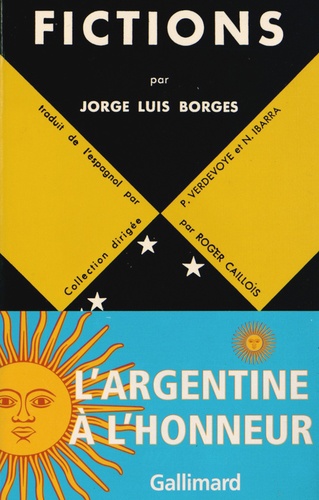




As people become addicted to the lottery, and above all to its punishments, they begin perversely to enjoy “all the vicissitudes of terror and hope” they had thought to escape by means of the lottery itself.Ī stringent morality stands behind Borges’s fictionalized searches. Its favored means is a clever-seeming innovation: a game of “twofold chance” every 60 nights in which some win prizes while others win punishments that include maiming and death. This vertiginous search for a nonexistent account of a nonexistent planet leads to fantastic descriptions of an imagined civilization that, in eerie and finally alarming ways, turns out to mirror our own.Ī similar mirror-like effect underlies “The Lottery in Babylon,” a fable of an entire country attempting to limit the uncertainties that bedevil the human condition. In “Tlön, Uqbar, Orbis Tertius,” the narrator-who is named Borges-is trying to research “the entire history of an unknown planet,” an encyclopedic account of which has been brought to his attention by another Argentinian writer. In Borges’s own later description of the trajectory of his career, he soon “moved on from the mythologies of the slums and outskirts of the city to games with time and infinity.” His second collection, the highly celebrated Fictions (1944), contains such masterpieces as “Tlön, Uqbar, Orbis Tertius,” “The Lottery in Babylon,” and “The Library of Babel.” I have read most, and yet he is perhaps the one I like least.” Why? Because he “writes about mental realities, he is sheer evasion.” Thus, the novelist, and leftist, Gabriel Garcia Marquez in 1967: “He is one of the writers. Although he excited interest because of the aesthetic possibilities he unearthed in a universe conceived of and in books, for some of his colleagues he too blatantly transgressed the local commandment that fiction should address itself to the political conditions of Latin American society. From the early 1920’s until his death in 1986, he also lived a private life as a writer’s writer, crafting exquisitely fantastic-and, appropriately, bookish-fictions that eventually won him a reputation as a 20th-century master, on a par with Joyce and Kafka (to mention two with whom he is often compared).Īmong his fellow Latin American writers, appraisals of Borges have been divided since the beginning of his career. By Jorge Luis Borges edited by Alexander Colemanīy Jorge Luis Borges translated by Andrew Hurleyīorn in Buenos Aires 100 years ago, Jorge Luis Borges devoted his life to the preservation and investigation of books, first as a municipal suburban librarian and later as the director of the National Library of Argentina.


 0 kommentar(er)
0 kommentar(er)
